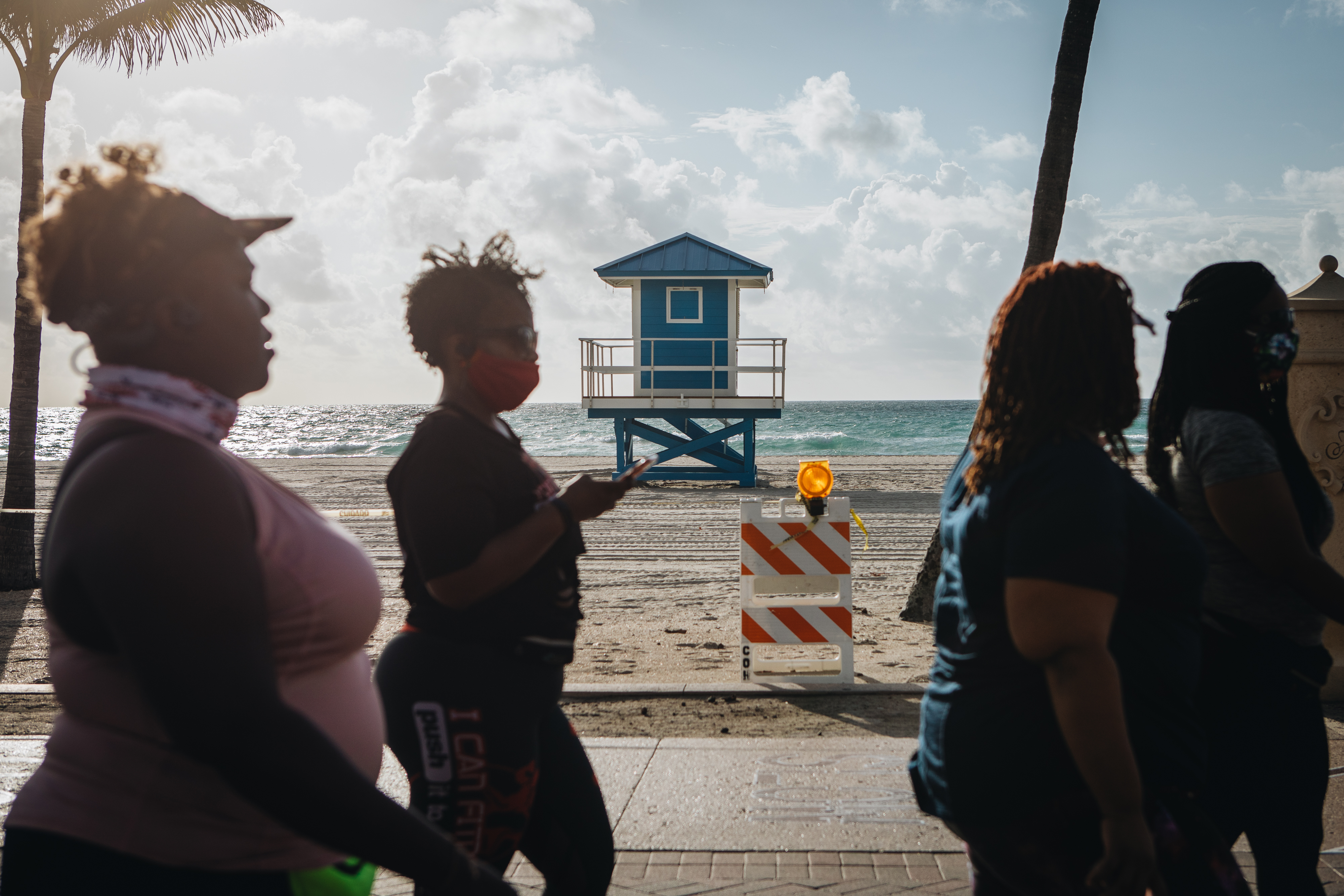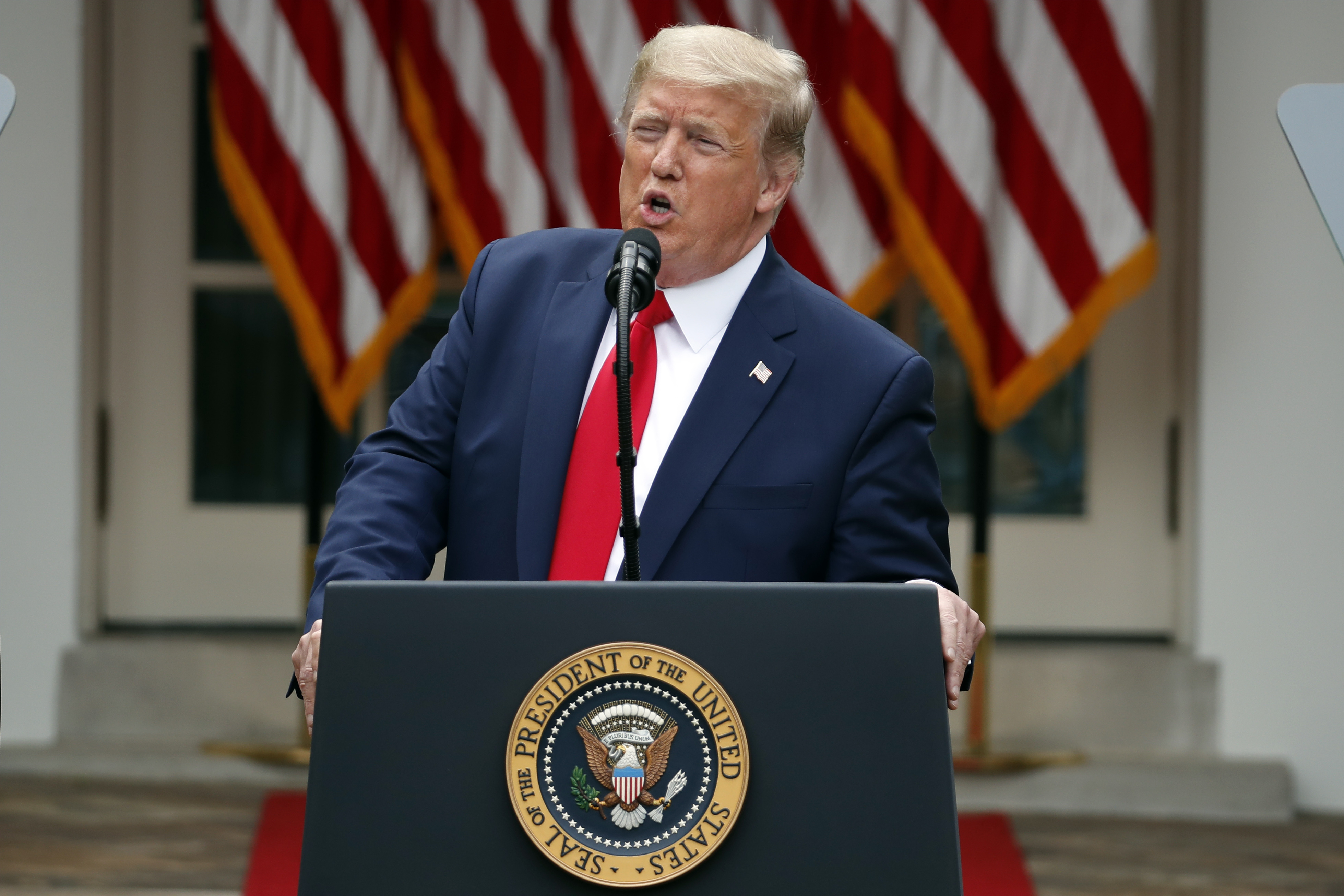The economic impact of the coronavirus pandemic punched a $880 million hole in the state budget in April. More negative financial effects are expected throughout the summer. Congress sent several billion dollars to Florida by the Federal CARES Act, but it can’t use it to fill the hole in the budget -- as of now.
Statewide leaders are split on calling for more “flexibility” in what the money can be used for -- Gov. Ron DeSantis and Senate President Bill Galvano, R-Bradenton, on one side, and Sen. Rick Scott and Florida Speaker of the House Jose Oliva, R-Miami Lakes, on the other. Florida Senior U.S. Sen. Marco Rubio has not yet returned a request for comment.
Florida currently has a 12.9% unemployment rate, according to Office of Economic and Demographic Research. Staff in that office details in a new report that sales tax collection decreased $598.2 million and corporate income tax collection decreased $246 million, in addition to other taxes.
Tough decisions loom as the state’s budget shortfall continues to grow in the wake of the coronavirus pandemic.
Karla Hernandez-Matz has taught special needs in Miami-Dade for 17 years. She’s the president of United Teachers of Dade. She has her eye on state lawmakers, because any time there’s talk about budget shortfalls, there’s talk about budget cuts. She is worried state teacher pay raises that were just passed by Florida lawmakers will be reversed.
“At the end of the day when this pandemic is over, we’re either going to be in a better situation because our government leaders fought for us. Or, we’re going to be in a worse situation because they didn’t do enough for us,” Hernandez-Matz said. “They’re waiting on the laurels to see if a plan pops up from some heavenly place.”
The trouble is: Florida cannot fill its budget hole with the $4.6 billion from the Federal CARES Act. That money must be used to directly combat the coronavirus: pay for testing, employee overtime, medical supplies and other items.
The U.S. Department of the Treasury has sent notice to states thinking about using CARES Act money for those purposes.
“Funds may not be used to fill shortfalls in government revenue,” staff for the Treasury Department wrote.
“Right now it’s a big question mark on whether we’ll have to return that money,” said Holly Bullard, from the Florida Policy Institute. Without more flexibility, the State of Florida could be in a financial mess similar to what it was in during the Great Recession.
“Five billion dollars is the budget for the state university system. It’s a huge amount of money, and for us to not be able to use for revenue backfill is very startling,” Bullard said.
At a news conference this earlier this week, DeSantis told NBC 6 that the federal government has been more flexible than he expected and would support additional abilities to fill in holes in the budget.
“I think if you had flexibility, more flexibility on that, that would be a really, really good thing,” DeSantis said.
Another of Florida’s top three leaders in the state legislature agreed with DeSantis. Galvano sent a memo out to senators saying he did not support Washington dollars bailing out pension plans or other items unrelated to COVID-19.
What he does support, he wrote, was allowing the $4.6 billion “can be used not only to pay for direct expenses related to the state’s response to COVID-19, but also to address the very real cost of revenue loss that was a direct result of shutting down our economy to protect lives.”
CORONAVIRUS LATEST
DeSantis and Galvano split with Oliva, who said through a spokesperson, “It isn’t within our tradition as a fiscally conservative state to use non-recurring funds for recurring expenses, regardless of their origin. While flexibility on the use of CARES Act dollars may resolve a short-term cash flow need, it will do so at the expense of massing future debt in an uncertain economic environment.”
The two largest voices on this topic could come from the state’s senators in Washington D.C. who play a large role in setting federal policy and any future guidance from the Department of Treasury.
Press Secretary Sarah Schwirian for Scott wrote NBC 6 that D.C. should continue to reimburse state and local expenses to fight the virus, “but he supports the restrictions tied to the Coronavirus Relief Fund that were included in the CARES Act to make sure the spending is for coronavirus response only.”
Scott has been one of the harshest critics of federal money going to states for reasons outside of fighting the virus, what he and allies call “bailouts” to fiscally irresponsible governments.
The state has already spent millions of side effects of the coronavirus. $3.5 billion is the estimated unemployment benefits paid out from the Department of Economic Opportunity. The Agency for Health Care Administration estimates Medicare could increase by $1 billion because of the pandemic’s effects.
Meanwhile, the state has paid out hundreds of millions of dollars in supplies and personal protective equipment since the pandemic began.



